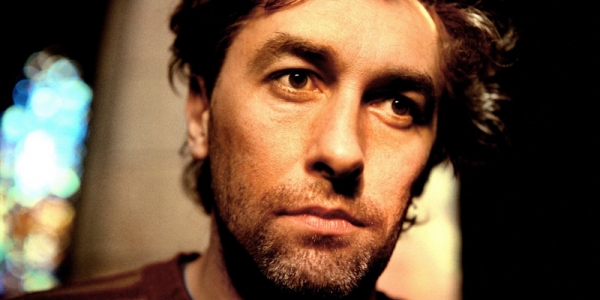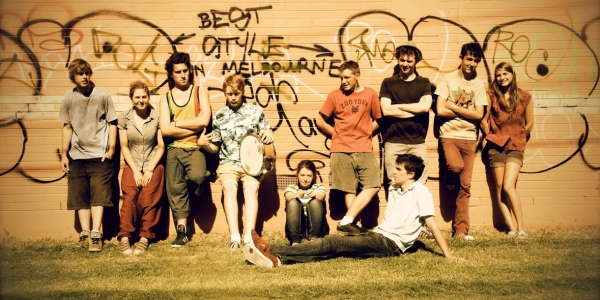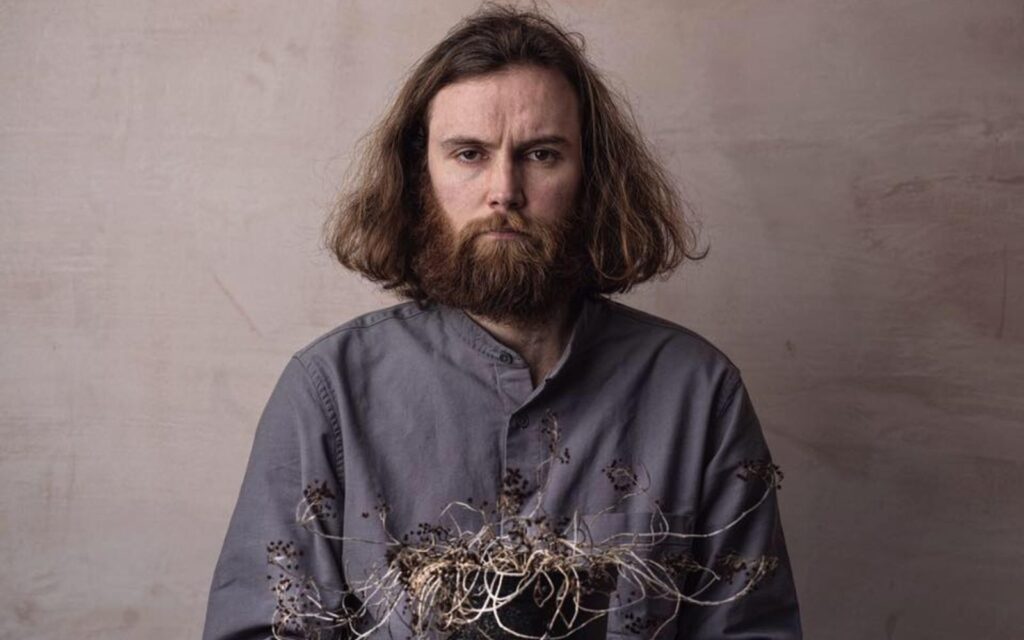Two things occurred to me before my interview with Yann Tiersen. Firstly, he’s French, which, if generalisations are to be taken at face value, could serve as an indication of a touchy attitude. The kind of journalistic grilling reserved for a corrupt politician or, more applicably, to pull an explanation from a musician who has creatively shifted to escape the easily definable image he was lumped with years ago, may have to be put aside for a friendly and careful chat. Secondly (as hinted above), Tiersen seems to resent that his name resonates exclusively with scenes of Audrey Tautou drinking mulled wine in the bohemian flat of a Da Vinci-esque painter scattered with scenes of her flying cheerfully through the cobbled streets of Paris, arms draped around her dreamy lover, on the back of his rickety motorcycle.
After all, while Tiersen composed the soundtrack to Jean-Pierre Jeunet’s 2011 masterpiece Amelie, the compilation wasn’t his own. Jeunet broke up the cohesiveness of Tiersen’s first four albums by grabbing the odd tracks from them to compile Amelie’s music. This would suggest that recognising Tiersen as Amelie’s composer alone doesn’t give credit to the weight of his talent.
The soundtrack was nominated for a BAFTA award, won the 2002 Caesar Award for Best Music Written for Film and catapulted Tiersen into universal acclaim. But the 42 year old has produced seven studio albums, three live albums and four collaborative works. Plus Amelie was over ten years ago – it shouldn’t define him. It makes sense that a constant throwback to that indie soundtrack era could make him a little dicey.
My concerns weren’t completely off the bat. When asked whether he uses the accordion – the instrument which adds the quirk and distinctive French-ness to Amelie – in any of the tracks of his latest album Skyline, his response carries an offended tone: “No, of course not! There is no accordion for a long time. In the ‘90s, for me it was a really strange instrument that I didn’t know. I don’t use it anymore. Now it’s all synths and guitars.”
But I did encounter a misconception about Yann – besides the one Wikipedia puts forward about his first name being Guillaume (“That’s just Wikipedia bullshit”) He was born in Brittany, a region in the North-West of France, which was originally occupied by the Dutch (why the name Yann, as opposed to Guillaume, makes sense), so he doesn’t come from strong French origins. In fact, he is more culturally aligned with Belgium and Norway.
His sound may have started off as distinctly French, but unlike that of a folk musician, the need to keep reflecting a solidly embedded cultural identity isn’t there. His first five studio albums had French names, the last two, Dust Lane and Skyline, are in English. According to Tiersen, the language change and accordion disposal aren’t a conscious effort to break away from the French, “it’s just evolution.”
“I live in 2012 and I like to use technology.”
And then the folk-musician identification doesn’t apply to Tiersen – nor does that of a composer. “I’m not comfortable with that appellation,” he muses. “It’s very old fashioned and romantic stuff and that’s not really who I am. I grew up in the ‘70s and ‘80s being influenced by punk rock like the Stooges and Joy Division. I’m just a musician making music.”
Despite his boyish dreams of becoming a rock star, he was sent for classical training in violin and piano (“when you’re young you have no choice”). Combing his multi-instrumental ability with modern technology and other creative accompaniments (“I used chairs banging on the floor in Dust Lane”) is what makes his compositions so complex and unpredictable.
Some tracks in Skyline start off with an Interpol-esque brooding guitar but the soft and childish xylophone makes many an appearance adding a whimsical quality that colours in most of Tiersen’s albums.
The first track, Another Shore, throws itself into an electric, rock sound, even though it’s peppered with bells, a bass clarinet and some inter-terrestrial moaning. The elements don’t fit into any one genre, making Tiersen’s music hard to define. Unlike a traditional composer, Tiersen says he doesn’t have a sense of direction or structure. “I just put stuff together and see if it works.”
While Dust Lane is a tormented story of struggle, Skyline is about overcoming. “I think it’s the continuity of Dust Lane to push it a bit further,” Tiersen says. Occasionally, the acoustic guitar and soft sounds of bells can be ones for rumination but there are also build-ups that produce the kind of elation that comes with the accumulation of crashing cymbals.
“My plan was to play with contrast between electric and quite dense parts and more sober and minimal quiet parts including piano and strings,” he says
And besides what you might expect from an instrumentalist, he also sings. The words in some of the songs are background one-liners, repeated continually as if food for thought. “Someday my girl, in the mirror, darling you will face the trial,” he sings in track eight, The Trial. While the words, he admits, are just a “personal anger with a girl,” they still fit in with the general theme of the album. As do those of I’m Gonna Live Anyhow – a line repeated throughout the second track presenting a mournful and yet conquering outlook on the entrapment of living.
BY SASHA PETROVA
Yann Tiersen plays at the Melbourne Recital Centre on Wednesday April 4. He also plays Byron Bay Bluesfest, taking place Thursday April 5 until Monday April 9. Skyline is released on Friday April 6 through Anti-Records.







